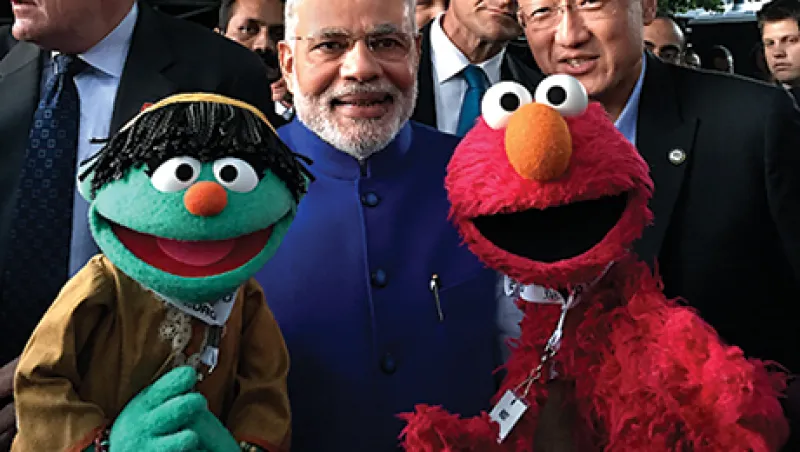
Sesame Street Muppet Raya Teaches Children Better Hygiene
The World Bank and the Bill and Melinda Gates Foundation have enlisted the Sesame Street puppet to help spread the word about sanitation.
Kaitlin Ugolik
March 27, 2015


